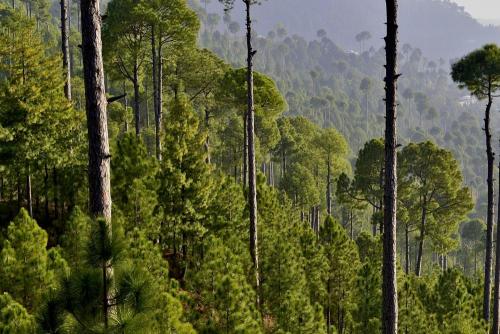
https://www.cbd.int/article/new-regional-capacity-development-support-pr...
The newly announced programme is expected to bolster national efforts in the implementation of Target 2 of the Kunming-Montreal Global Biodiversity Framework (KMGBF): “Restore 30 per cent of all degraded ecosystems”.
The announcement of this new programme comes in the wake of the adoption of COP16 decision 16/35 on “Cooperation with other conventions and international organizations”, which invites FAO and UNEP, in collaboration with the Rio conventions and other relevant partners, to continue to implement the KMGBF, including through the “Roadmap for Target 2”.
The new programme is a component of the “Roadmap for Target 2” (2024 – 2030) aiming to accelerate implementation by fast-tracking data compilation and enabling reporting on progress in ecosystem restoration. Among other objectives, the Roadmap seeks to deliver capacity development for Parties to the CBD in the alignment of their national planning, monitoring and reporting with the ecosystem restoration target of the KMGBF.
Thus far the Roadmap for Target 2 has included the development of tools and guides, such as the Framework for Ecosystem Restoration Monitoring (FERM), a geo-spatial platform developed and managed by FAO, the Target 2 Resource Guide, a technical publication on enabling consistent reporting and monitoring for freshwater (inland waters) restoration under Target 2, and a series of online courses. Data collected through FERM will feed into an important indicator that the world agreed for Target 2, as part of the KMGBF Monitoring Framework, namely “Indicator 2.1: Area under restoration”. FERM-collected data will also feed into other key global reporting processes under the CBD.
“By providing national institutions with the tools and knowledge they need, the new capacity development support programme is expected to fast-track restoration efforts and contribute to transparent reporting on the implementation of Target 2. This is welcome news as the world approaches the global review of the implementation of the KMGBF as a whole at COP 17 in Yerevan,” said Astrid Schomaker, Executive Secretary of the CBD.
The network of regional and sub-regional Technical and Scientific Cooperation (TSC) support centres, selected by the Parties to the CBD and announced in May 2024, will underpin the delivery of the programme by providing tailored, region-specific training and technical assistance. Ten centers that expressed interest in joining the new programme were selected to receive financial support from FAO’s Accelerating Innovative Monitoring for Nature Restoration (AIM4NatuRe), funded by the United Kingdom, and the SCBD’s Forest Ecosystem Restoration Initiative (FERI), funded by the Korea Forest Service.
As the 2030 deadline for the Sustainable Development Goals, the UN Decade on Ecosystem Restoration and the KMGBF targets edges closer, the capacity-development programme will seek to accelerate action on ecosystem restoration as a synergistic solution to biodiversity loss, climate change, and land degradation. The envisaged activities include supporting food security and livelihoods as well as fostering regional collaboration, integrating indigenous knowledge, and engaging with stakeholders from the private sector, academia, and local communities.
The announcement of the new regional capacity development support programme by the FAO and the CBD Secretariat coincided with the annual global celebration of the International Day for Biological Diversity, proclaimed by the United Nations General Assembly to commemorate the adoption of the text of the Convention on 22 May 1992. The theme of the 2025 edition is “Harmony with nature and sustainable development”.









